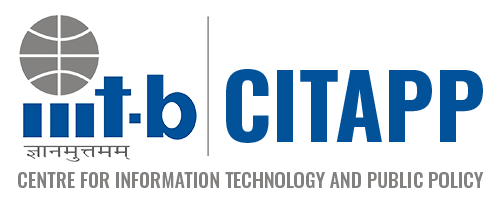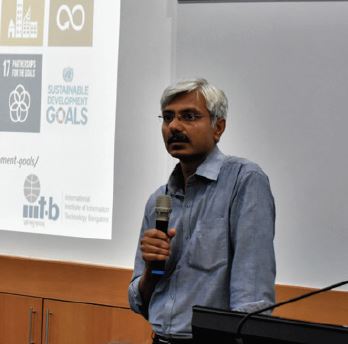Date: 8-1-2018
Description: Prof. Amit Prakash, IIIT Bangalore, Ashish Kumar Srivastava, M.Sc. (Digital Society), 2nd year, IIIT Bangalore, Rajesh Hanbal, PhD candidate in the ITS area, IIIT Bangalore, Supriya Dey and Vidhya Y, Co-Founders, Vision Empower Trust (incubating at IIIT Bangalore Innovation Centre)
January 8, 2018
Abstract: In this session, we will touch upon two key aspects of the Indian state’s response to the issues currently plaguing [most of] its citizens: ‘inclusion’ and ‘ICTs/digital technologies’. Inclusion has been used quite often in the last few years in guiding our aspirations as a nation – the 12th (and, the last) Five-Year Plan had a focus on faster, sustainable and more inclusive growth while the present Union Government has adopted sabka saath, sabka vikas (collective efforts, inclusive growth) as its governance mantra. Similarly, flagship programmes such as Digital India (and, the earlier National E-Governance Plan), look up to ICTs as critical in transforming the country’s development landscape. We draw upon ongoing and completed research projects at IIIT Bangalore’s Centre for IT and Public Policy (CITAPP) and E-Health Research Centre (EHRC) in the broad area of ICT and Development (ICTD) and concerning the sectors of health & nutrition, education, livelihoods and food security to provide a commentary on existing technology design approaches and their implications for inclusion of a diverse range of people and social groups. Our findings and conclusions point towards a need for greater inclusion in the technology design process if the chances of ICTs contributing to inclusive growth have to improve.
About the Speaker: https://www.iiitb.ac.in/faculty_page.php?name=amitprakash
For video: https://www.youtube.com/watch?v=NOwMuNt5dU8

